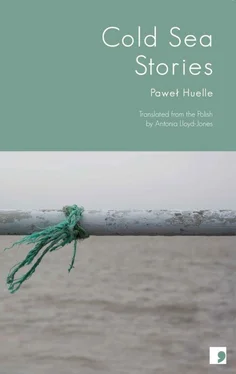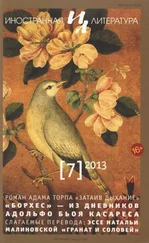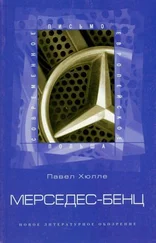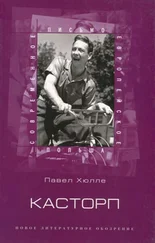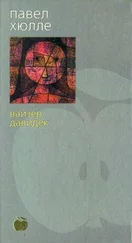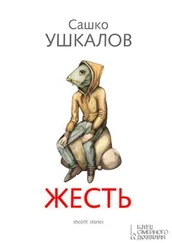He began to fret when he didn’t receive an answer. He called again, but only a startled owl squawked from the nearby pines. About fifteen seconds went by, as he stood there amidst the silence entirely veiled in white. Finally he heard her footsteps behind him. ‘Did you get lost?’ he asked. ‘Did you go off the track?’ But as she gave no reply, they walked on, side by side now, to the clearing. The fog was dispersing. Someone had dragged their things about in the grass, knocked over the tent poles and overturned the interlocked bikes, although it looked as if nothing had been taken. They had just finished tightening the guy ropes when Sabina whispered: ‘There, in the window – look!’
He reassured her. As the setting sun cast light on the window frame, it caused a sloping shadow to fall inside the empty house, and this looked like a person.
‘It’s moving,’ she said, grabbing his hand. ‘We’d better go!’
Finally he persuaded her they should go in there together. In a large kitchen area, where the bare remains of a tile stove were still standing, they cautiously walked among swirling pillars of dust, picked out of the grey gloom by the slanting shaft of light falling through the window. They passed from one room to the next, hesitantly, like uninvited guests. There were no household items or even the remains of furniture anywhere. The sun, wind, rain and frost must have been causing devastation here through the holes in the roof and the empty eye sockets of the windows since long ago. Decaying floor boards, fungus on the roof beams and weeds growing in the middle of a side room – all this they saw, as well as evidence of casual visitors. There were rags and broken bottles lying about everywhere, and the place stank of urine and old excrement.
‘All these days we’ve been a stone’s throw from here,’ said Sabina. ‘What if someone was spying on us? How awful.’
‘No one has been in here for ages,’ he said, pointing at their own footprints in the thick layer of dust and sand from the beach. ‘Look.’
But Sabina did not want to see any more. Through an empty door frame she went out onto the porch, ran down to the meadow and back to the tent. It was only the crash of rotten floorboards that stopped her in her tracks. As he was coming down from the porch, he had fallen almost up to his neck into something that must once have been a small cellar. He had ripped his trousers, banged his knee and grazed his elbows. But as he scrambled out of the hole, he felt a sort of package under his feet, in a niche in the brick foundation wall. Soon he had extracted a metal box, wrapped in a long-decayed piece of cloth.
‘Leave it,’ she asked. ‘It looks like a doll’s coffin. Are you that curious? Do you know how many microbes there are on those rags?’
‘More like a booby trap,’ he joked, separating the fabric from the tin lid with a knife. ‘Adek’s farewell kiss.’
‘Adek?’ she asked uncertainly.
He used two fingers to give himself a toothbrush moustache, and they both laughed.
A day later, on the return journey, as they were riding along the canals, weirs and state-farm stubble fields again, it was the only thing they could talk about.
Why had someone taken so much trouble to hide a badly scorched Bible? From the Russians? To whom did it belong? Was Harmensoon the owner of this copy, for that was the name – unless it was a surname – written in fine calligraphic script which they had read on a yellowed slip of paper placed among the pages of the Book of Daniel? Printed in Königsberg in the year of Our Lord 1794 - it must have had previous owners. Why had it been hidden under the steps? As they were waiting for the ferry across the Vistula, he explained to Sabina that this Harmensoon could not be a pastor if he belonged to one of the local chapels.
‘They did not recognise the clergy,’ he added, as the steel platform cut across the slow current of the river, ‘and elected their own chiefs.’
She said he should write something about it. A love story. So that the half-charred Bible had some direct connection with it. And also that he should describe the road down to the sea they liked so much. He shrugged his shoulders at the idea. He had no intention of writing anything. But he decided to keep the Book for ever. Just like the August light and the scent of her hair, it belonged to that summer.
III
During the night his sleep was interrupted several times by the thudding of the disco. The oomph – oomph – oomph of the bass line literally made the walls of the boarding house shake as it boomed away among the pine trees like a series of explosions. Now and then a car alarm went off. Then the upper floor came alive too. He could hear doors slamming, people running about the corridors and calling each other, loud laughter, and the shatter of breaking glass. Eventually he took two strong pills and sank into a heavy, ridiculous mist of abruptly ending dialogues, alien faces and unfamiliar places. He woke up late, before eleven. He ate breakfast in the tidied-up, rather empty dining hall. Yesterday’s decorations were lying in a heap in the corner: with the air let out, the plastic toys looked even worse than the day before. The tired waiter had not had time to ventilate the restaurant properly; the stale air smelled of alcohol, sweat, incense and marijuana, clearly smoked quite intensively. If he had been here with Sabina, he’d have felt awful. At the reception desk he announced that he was leaving and paid his bill. He threw his bag in the boot of the car, took his camera and set off on foot to the sea. But what was he going to photograph? The boarding house stood on the site of the abandoned house, and was not interesting in itself. The meadow where they had pitched the tent that time had disappeared under the car park, a site for a barbecue and a concrete sports area. Along the access road from the village the old trees had been cut down and, on the tiny, shredded allotments, the building blocks of summer cottages had been erected. The path he had followed yesterday and twenty-five years ago looked no better in the harsh sunlight. The benches and lamps placed at the head of it had been vandalised. There were mountains of litter pouring out of the rubbish bin, and a swarm of wasps was buzzing around the remains of fruit and empty juice bottles. Completely trodden away in the middle, the moss only grew on the sides of the dunes now. In its place, to prevent the rainwater from washing away the sand, slabs of concrete had been set in here and there, just like the ones at the parade ground he remembered from military training.
The way down to the beach brought him an even bigger surprise. Yesterday’s company from the Stokrotka, perhaps in its entirety, was gathered around the pastor, gearing up to make a home movie. The sight of so many naked men – hugging their own bodies, flexing their muscles or just as willingly revealing their sagging bellies, private parts and buttocks – among whom the director was diving about with a camera, was rather a shock for the other beachgoers. Dressed in bathing costumes or swimming trunks, they were bypassing the large semicircle of nudists as quickly as they could, most of them with eyes averted. He did not take any photos. He walked almost a kilometre along the shore to the next way down to the beach and went back up it, through the woods to the road, then along the road to the boarding house car park.
Behind the wheel, as he passed one holiday home after another, he thought about Sabina again. After her first year of studies she had gone to spend the vacation with her family in Chicago and stayed there. It wasn’t even a break-up: they hadn’t had any serious conversations, or exchanged any letters. He hadn’t suffered because of her. But when he and his first wife had separated after several years of marriage, he had come upon that Bible while packing up his things, and had felt a stab of pain in his heart, perhaps for the first time in his life grasping the meaning of the word ‘irrevocable’. Now he felt deep sorrow, with weariness stacked on top: he was tired of himself, of life, and of this entirely unnecessary outing to a place that didn’t actually exist any more. At the ferry the queue of cars was so long that he turned around and drove about twelve kilometres up river to the bridge. Half way across it, despite the sign forbidding it, he stopped the car, got out and opened the boot. He took the Mennonite Bible out of his travelling bag, threw it into the water and watched it change into a smaller and smaller, almost invisible dot. The drivers who were forced to go around his car hooted their horns furiously.
Читать дальше
